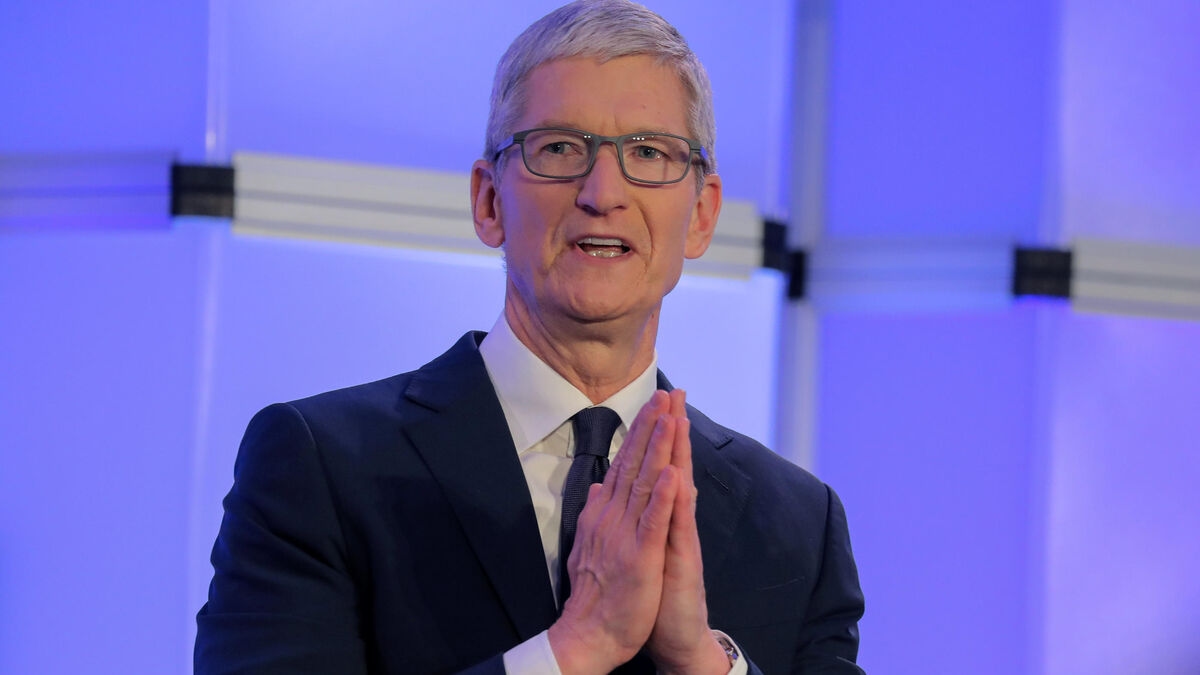Despite disappointing iPhone sales, Apple delights investors, with the stock rising after the earnings release.

The American group compensated for poor iPhone sales figures with strong performance from services, a growth driver for several quarters, which generated, for the first time, more than $100 billion in revenue.
By Le Parisien with AFPApple salvages its position: despite disappointing iPhone sales during the fourth quarter of its fiscal year, which ended in September, the Californian company posted a high level of profitability. iPhone sales missed expectations, reaching $49 billion (+6%), significantly below the $50.1 billion anticipated by analysts, representing a 2% shortfall.
During the earnings call, CEO Tim Cook explained that this underperformance was primarily attributable to production "constraints" that, in his view, prevented the company from meeting demand. The flagship Apple phone benefited only marginally from the launch of the iPhone 17 , which took place on September 19, just a few days before the fiscal year ended.
According to a report published Wednesday by CIRP, initial results show that the iPhone 17 is a success for most models, with the notable exception of the ultra-thin Air. This new generation "has been met with tremendous enthusiasm from consumers around the world," commented Tim Cook. The company anticipates double-digit growth for the iPhone in the current quarter, according to Chief Financial Officer Kevan Parekh.
Even though it didn't exactly set the world on fire in the fourth fiscal quarter, the iPhone doesn't seem to be suffering, for the moment, from Apple's delay in integrating generative artificial intelligence (AI) , offering fewer AI features than rivals Google with its Pixel phone or Samsung. Tim Cook indicated this Thursday that the company is making "good progress" in developing the new version of its voice assistant Siri, expected only next year.
For its past fiscal quarter, the Cupertino, California-based company offset the weak iPhone performance with services (+15%), a growth driver for several quarters. These services include the App Store, music (Apple Music) and video (Apple TV) streaming platforms, and cloud storage (iCloud). For the full fiscal year, services generated over $100 billion in revenue for the first time ($109 billion). Apple also benefited from strong sales momentum for its Mac computers (+13%).
In total, revenue reached $102.4 billion (+8%), slightly better than Wall Street's forecast of $102.2 billion. More than the iPhone debacle, investors focused on the gross margin, which came in at 47.2%, significantly higher than levels seen in recent years.
For Angelo Zino, an analyst at CFRA, margins are "a strong point" in the results published Thursday by the consumer electronics giant. According to Kevan Parekh, Apple is forecasting a margin between 47% and 48% for the current quarter, despite the impact of tariffs imposed by the US government, estimated at $1.4 billion, which is more than the $1.1 billion recorded for the period from July to September.
Initially down, Apple shares rose nearly 3% in after-hours trading following the close of the New York Stock Exchange. Net income reached $27.5 billion, almost double year-over-year (+86%), according to a press release. Earnings per share, a key metric for investors, came in at $1.85, exceeding the $1.78 market estimate, according to a FactSet consensus.
Besides the iPhone, Angelo Zino also highlighted, among the negative points of the past quarter, the slowdown in China (-3.6%), while all other regions where Apple operates saw their revenue increase, particularly Europe (+15%). When questioned on this point, Tim Cook asserted that the decline in China was due to Apple's supply chain's inability to meet iPhone demand.
The iPhone 17 models are also hampered by still insufficient production capacity, the group's CEO continued. "We are working hard to achieve this, (...) but we are not making any predictions" about when supply will catch up with demand.
Le Parisien






